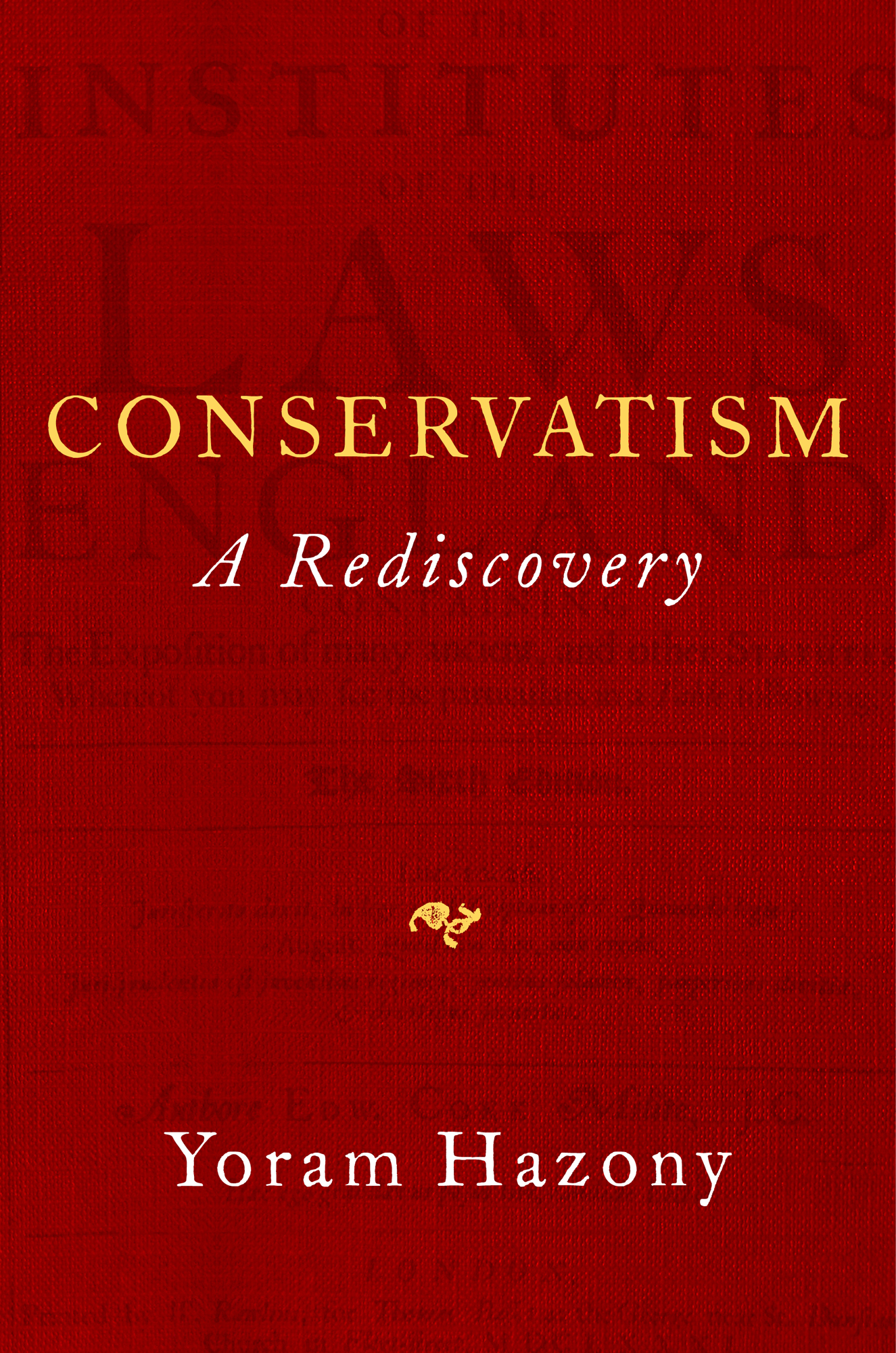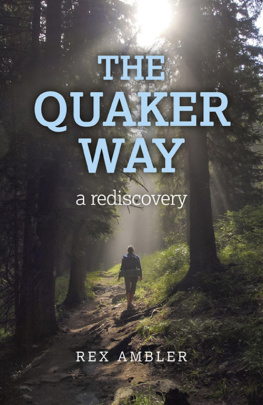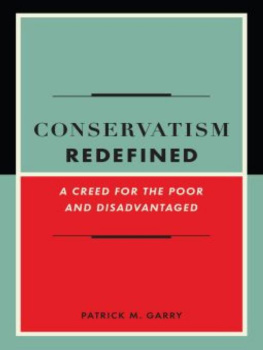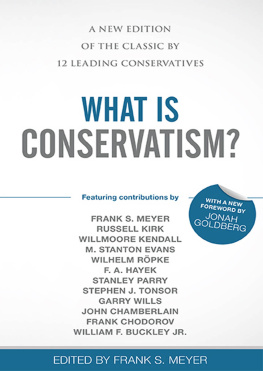Yoram Hazony - Conservatism : A Rediscovery
Here you can read online Yoram Hazony - Conservatism : A Rediscovery full text of the book (entire story) in english for free. Download pdf and epub, get meaning, cover and reviews about this ebook. year: 2022, publisher: Regnery Gateway, genre: Politics. Description of the work, (preface) as well as reviews are available. Best literature library LitArk.com created for fans of good reading and offers a wide selection of genres:
Romance novel
Science fiction
Adventure
Detective
Science
History
Home and family
Prose
Art
Politics
Computer
Non-fiction
Religion
Business
Children
Humor
Choose a favorite category and find really read worthwhile books. Enjoy immersion in the world of imagination, feel the emotions of the characters or learn something new for yourself, make an fascinating discovery.

- Book:Conservatism : A Rediscovery
- Author:
- Publisher:Regnery Gateway
- Genre:
- Year:2022
- Rating:4 / 5
- Favourites:Add to favourites
- Your mark:
- 80
- 1
- 2
- 3
- 4
- 5
Conservatism : A Rediscovery: summary, description and annotation
We offer to read an annotation, description, summary or preface (depends on what the author of the book "Conservatism : A Rediscovery" wrote himself). If you haven't found the necessary information about the book — write in the comments, we will try to find it.
Conservatism : A Rediscovery — read online for free the complete book (whole text) full work
Below is the text of the book, divided by pages. System saving the place of the last page read, allows you to conveniently read the book "Conservatism : A Rediscovery" online for free, without having to search again every time where you left off. Put a bookmark, and you can go to the page where you finished reading at any time.
Font size:
Interval:
Bookmark:

Conservatism
A Rediscovery
Yoram Hazony

With this astonishing book, Yoram Hazony takes uncontestable leadership of postliberal conservatism, becoming not only its most important public intellectual, but also its passionate prophet. Conservatism: A Rediscovery is the book we have long been waiting for: a compelling critique of where the right went wrong and how it can create a vital new public philosophy by reinvigorating old truths. An unusually compelling mix of history, political science, cultural analysis, religious wisdom, and personal testimony, Hazonys instant classic is not just the voice of a new conservatism; it is also the voice of an old civilization whose clarion call proclaims hope and sounds the way out of the contemporary Wests dark wood.
Rod Dreher, senior editor at The American Conservative and author of Live Not by Lies
Conservatism: A Rediscovery is a fascinating, erudite, and mind-opening workhistorically adept, philosophically vital, and clearly written. Its a must-buy and a must-read for anyone who thinks deeply about liberty, responsibility, and community.
Ben Shapiro, host of The Ben Shapiro Show and editor emeritus of The Daily Wire
Steeped in history, framed with well-defined concepts, and presented in crystal clear prose, Hazonys powerful vision of conservatism for the twenty-first century is capable of steering the ship of state out of our present perils.
R. R. Reno, editor of First Things and author of Return of the Strong Gods
Libertarians are used to arguing against those who praise government in the name of progress and for the sake of their own power. But the more intellectually forceful challenge to libertarianism comes not from progressives but from conservatives. Yoram Hazony provides that challenge in this lucid exposition of a tradition of conservative nationalism that begins in the Old Testament and passes through George Washington and Alexander Hamilton to our own moment.
Peter Thiel, author of Zero to One
Dedicated with love to Isaac and Linda Hazony
F or three generations, Western nations have lived in the shadow of the World Wars. The depths of the trauma have never been fully examined, nor its consequences entirely mapped. But we know that within a few years after the end of the Second World War, political life in these countries underwent an unprecedented revision. By the 1960s, the old Protestant nationalism that had animated the generation of Franklin Roosevelt and Dwight Eisenhower had been set aside, and Enlightenment liberalism became the new framework within which American political life was conducted. America was given what was, in effect, a new liberal constitution that guaranteed the civil liberties of blacks and other minorities, but also banned prayer and Bible-reading from the schools and lifted earlier legal restrictions on divorce, pornography, immigration, and abortion. Academics and intellectuals even gave a new name to the regimewhich they now called liberal democracy.
In the decades that followed, many Americans and Europeans came to believe that in liberalism, they had discovered the final political theory: a regime so obviously desirable that competition among political ideologies had in effect come to an end. Soon, liberalism would be adopted by all nations. The reign of liberal ideas would last forever.
No one believes this anymore.
Five years of political upheavalfrom 2016 to 2020was all it took to shatter the hegemony of Enlightenment liberalism. Suddenly, the conflict among competing political visions was fiercely alive once more.
On the one hand, the appeal of a revived nationalist conservatism was given dramatic expression by the 2016 election of Donald Trumps America First administration in the United States, by Britains departure from the European Union, and by the rise of nationalist conservative governments in Eastern Europe, Italy, India, Brazil, and other countries.
At the same time, an updated Marxism (calling itself Progressivism, Anti-Racism, or Woke) launched an astonishingly successful bid to seize control of the institutions that had been, until only recently, responsible for the development and circulation of liberal ideas in America, Britain, and beyond. Indeed, by the summer of 2020, most of the important news media, universities and schools, big tech and other major corporations, and even the government bureaucracy and the military had adopted a policy of accommodating the new Marxism and advancing its agenda.
Meanwhile, in 2018, a rising China anointed the chairman of the Communist Party, Xi Jinping, ruler for life. Persecution of religious and political dissidents followed, reaching a climax with the effective annexation of Hong Kong, until recently a symbol of Enlightenment liberalism in Asia, in 2020. These events put an end to the long-standing myth that economic prosperity would bring a liberal political order to China. Instead, Americans abruptly found themselves facing the bleak reality of an imperialist China pursuing an increasingly credible campaign to overthrow the liberal Western nations as the dominant power in world affairs.
The hegemony of liberal ideas, which was supposed to last forever and to be embraced by all nations, has come to an end after only sixty years.
What will happen next?
Many commentators have compared the crumbling of the liberal regime in America to Weimar Germany in the decade before Hitlers rise to power. And indeed, on the far reaches of the political right, new racialist movements (calling themselves white identitarians) have begun to press their claims, while an assortment of other radicals have taken to mentioning the advantages of dictatorship. So far, these views have remained without much influence. But the collapse of institutional liberalism and an ascendant Marxism could change that, providing fuel for a reaction drawing on authoritarian precedents from the last century.
Yet despite these grim historical parallels, America may have the resources to overcome these challenges. Many Americans still possess a strong intuitive commitment to the Anglo-American constitutional tradition. This includes the great majority of nationalist conservatives who supported the Trump presidency. To be sure, their insistence on the centrality of the nation in political life means that they oppose many aspects of the liberal consensus of recent decadesincluding large-scale immigration; the offshoring of American manufacturing capabilities to China in the name of free trade; the empowerment of international bodies such as the UN, EU, and WTO at the expense of independent national states; and wars aimed at bringing liberalism to the Middle East. They propose government action against the progressive cartels that dominate big business, the media, universities, and schools, and they seek policy changes that may assist in reversing the dissolution of the family and the decline of religious tradition. But nationalist conservatives support a democratic regime and peaceful transitions of power, as well as customary Anglo-American protections for property rights, freedom of speech, and free exercise of religion. These characteristics make national conservatism a powerful force with great potential for political revival and restoration in the coming years, whether on its own or in alliance with anti-Marxist liberals. In fact, with the collapse of liberal hegemony in America, nationalist conservatism offers the best hope for restoration of political stability and health.
Font size:
Interval:
Bookmark:
Similar books «Conservatism : A Rediscovery»
Look at similar books to Conservatism : A Rediscovery. We have selected literature similar in name and meaning in the hope of providing readers with more options to find new, interesting, not yet read works.
Discussion, reviews of the book Conservatism : A Rediscovery and just readers' own opinions. Leave your comments, write what you think about the work, its meaning or the main characters. Specify what exactly you liked and what you didn't like, and why you think so.







